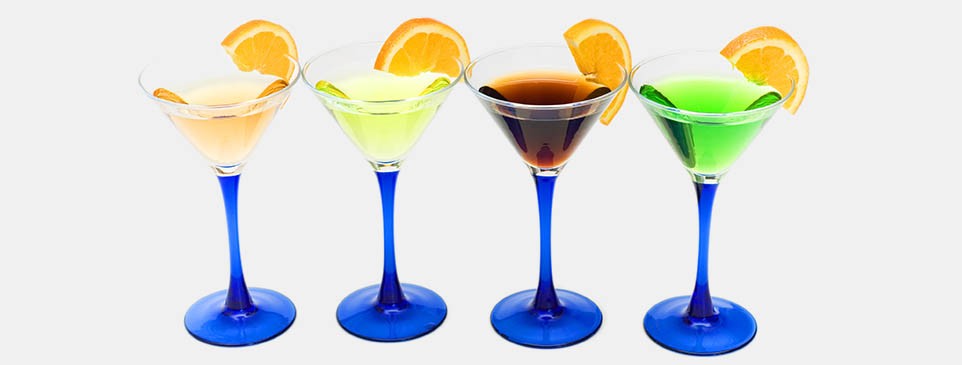Polycarbonate is the New Black

Plastic glassware is being used more in the pub industry especially at outdoor and sporting events, with calls from various councils and police forces around the UK to replace the traditional pint glass, wine glass and tumbler with polycarbonate ones.
A recent trial in Colchester has met with favourable feedback from publicans due to the increased safety to staff and customers after a string of recent incidents.
Plastic glassware may work out more expensive than glass but it does have some added benefits:
It’s harder to smash so less likely to cause harm if used during violent incidents or with day to day accidents such as slips, trips and falls while carrying glassware.
Plastic glassware also tends to be longer lasting than glass and in some cases is practically indestructible. There are some that are tough enough to withstand the weight of a person standing on it, if it is cleaned and handled correctly using the correct proprietary cleaning chemicals, so in the long term plastic glassware is more economical.
There are some downsides to bear in mind. Plastic does tend to act differently to glass when beer is introduced, there can be issues with head retention especially when serving lager. Plastic also takes longer to dry when using standard glasswash detergents and rinse aids, this is due to the fact that plastic does not retain heat as well as glass which means the thermal drying cycle of any glasswashing machine is less effective.
Customers also have a negative perception of drinking in pubs using polycarbonate glassware but with the increased number of councils enforcing the use of plastic glassware even inside public houses, during larger sporting and outdoor events, rather than glass, this will slowly change as people get used to the idea.
What is Polycarbonate?
Polycarbonate is a form of thermoplastic made up of many carbonate groups (−O−(C=O)−O−) which are pliable and move freely when heated to an appropriate temperature. This means that they can be moulded in a similar way to glass which allows them to form various shapes and products including drinking glasses. It’s unique structure means that once it has cooled it has a very high resistance to impact damage making it less likely to shatter whilst still remaining clear like glass, causing no loss of clarity. Polycarbonate is also lighter than glass which can make handling and storage safer and easier to do Polycarbonate can also be used to manufacture safety glasses and prescription lenses for use in an environment where standard glass is not suitable. Polycarbonate also has some anti-UV properties and will not discolour in sunlight unlike acrylic based products.
How to care for Polycarbonate Glassware
Polycarbonate Glasses are Glasswasher safe as long as you use the correct chemical detergents and rinse aids and adhere to the manufacturers washing and handling instructions. Some manufacturers such as Clenaware have a dedicated plastic washing cycle which alters the machine dosing and temperatures to give a more effective clean. Acrylic glasses should only be hand-washed as these are not heat resistant and a glasswasher will cause hairline cracks and fractures in the surface, which can cause the glass to break while in use.
Use suitable glasswashing detergents and rinse aids, incorrect chemical cleaners will degrade the surface of the glass and reduce its strength. Also ensure that you use the correct dosage of any cleaning chemicals. Check with your chemical supplier or manufacturer to see if they have a dedicated plastics washing range.
In areas of hard water you may get a build-up of salt deposits on the surface of the glass causing it to turn milky white (similar to minor blooms). The glass isn’t damaged and a Renovating cycle with a proprietary Renovate® product will return the glass to pristine condition.
Polycarbonate glasses are not suitable for the serving of some aniseed based drinks such as Pernod, Anis, Ricard, Raki and Ouzo based drinks and cocktails. These should be avoided as contact with these drinks they will irreversibly damage the glass.
As with standard glassware, glasses that have been used for milk or cream based drinks should be rinsed out thoroughly with warm water before putting them in the glasswasher, as these products will leave behind a thin layer of residue which will affect the appearance and taste of the next drink served.
Do not use abrasive pads or chemicals (such as dishwasher detergent tablets) on plastic glasses as this will cause scratches and ruin the appearance of the glassware.
Do not stack plastic glasses, for the same reason that standard glassware shouldn’t be stack, this causes scratches to the internal surface ruining their appearance and creating a nucleation site which will cause a drink to turn flat faster or foam up during dispense making the serving the drink more time consuming.
Plastic Glassware and standard glasses should not be mixed in the glasswasher this is to prevent any scratches to the surface of the polycarbonate and because they require different cleaning chemicals to give the best results and prevent damage.
If you have any queries regarding the proper care of polycarbonate and glassware, don’t hesitate to Ask CellarCraft

Download the entire CellarCraft guide
